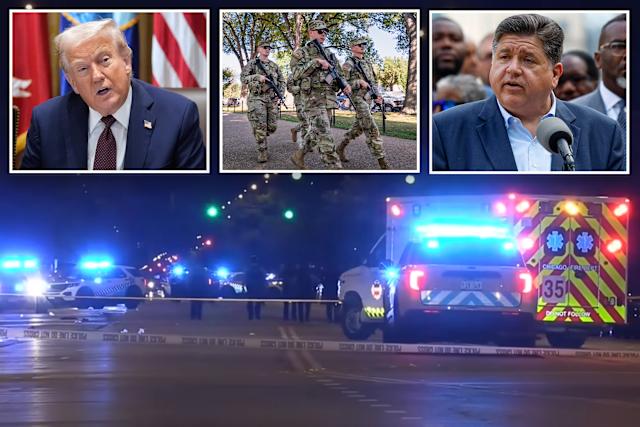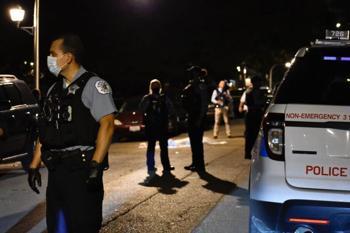Violence Grips Chicago Over Labor Day Weekend as Debate Over National Guard Deployment Intensifies
A deadly holiday weekend in the city
Chicago faced a devastating surge of gun violence over the Labor Day weekend with at least 54 people shot and seven killed. The shootings, which spanned multiple neighborhoods, have reignited political battles over public safety and raised questions about the potential deployment of federal forces to the city.
Trump threatens action while officials push back
Former President Donald Trump renewed his threats to send federal agents and National Guard troops to Chicago. In a post over the weekend, he warned Illinois Governor JB Pritzker to “straighten it out fast” or face federal intervention.
Governor Pritzker strongly rejected the idea, calling it unconstitutional and un-American. He stressed that the state would not accept what he described as unlawful military occupation. Chicago Mayor Brandon Johnson echoed this sentiment, voicing grave concerns that any such deployment would inflame tensions between residents and law enforcement rather than resolve them.
To counter the possibility of federal intervention, Johnson signed an executive order known as the Protecting Chicago Initiative, directing the city’s legal department to pursue every avenue to safeguard the rights of residents against overreach. He warned that credible reports suggest the city could face militarized action within days.
Shootings across the city
The wave of shootings began Friday night and continued through Monday. Police recorded at least 32 separate incidents in less than three days. Victims ranged from teenagers to adults, many caught in crossfire or random bursts of violence.
-
In Bronzeville, a drive-by shooting left seven people injured Saturday night. Victims aged between 28 and 32 were taken to hospitals with non-life-threatening injuries.
-
The first homicide was reported late Friday in South Shore, where a 25-year-old woman was fatally shot inside an apartment. Another woman was wounded in the same attack.
-
In East Garfield Park, two men were shot Saturday morning, one of whom later died at Mount Sinai Hospital.
-
Later that evening, a 43-year-old woman in Altgeld Gardens was killed when five armed men opened fire on her.
-
Early Sunday in Pilsen, a triple shooting left a 46-year-old man dead and two others wounded.
-
Additional killings occurred in West Inglewood, Pullman, and Little Village, each adding to the grim toll of the weekend.
-
By early Monday, another major incident in the Oakland neighborhood left five people injured, including a 17-year-old boy in critical condition.
Across the city, gunfire echoed through multiple communities, and in many cases no suspects were immediately arrested.
Rising political tensions
The violence erupted just hours after Trump’s latest social media statement against Illinois leadership. He has previously claimed that federal intervention was necessary to restore order, citing earlier actions in Washington, D.C.
Chicago officials counter that crime in the city, while still concerning, has actually been on the decline. According to recent city data, shootings dropped by 37 percent and homicides by 32 percent in the first half of 2025 compared with the same period in 2024.
Governor Pritzker dismissed Trump’s threats as a political stunt, accusing him of attempting a dangerous power grab. “Do not come to Chicago,” Pritzker declared. “You are neither wanted here nor needed here.”
A city on edge
The Labor Day weekend violence underscores the challenges Chicago faces in reducing gun crime while balancing political pressures. With residents still reeling from the string of shootings and leaders clashing over solutions, the city finds itself at the center of a national debate on law, order, and constitutional rights.


COMMENTS (0)
Sign in to join the conversation
LOGIN TO COMMENT